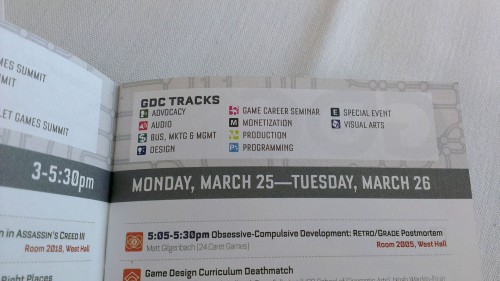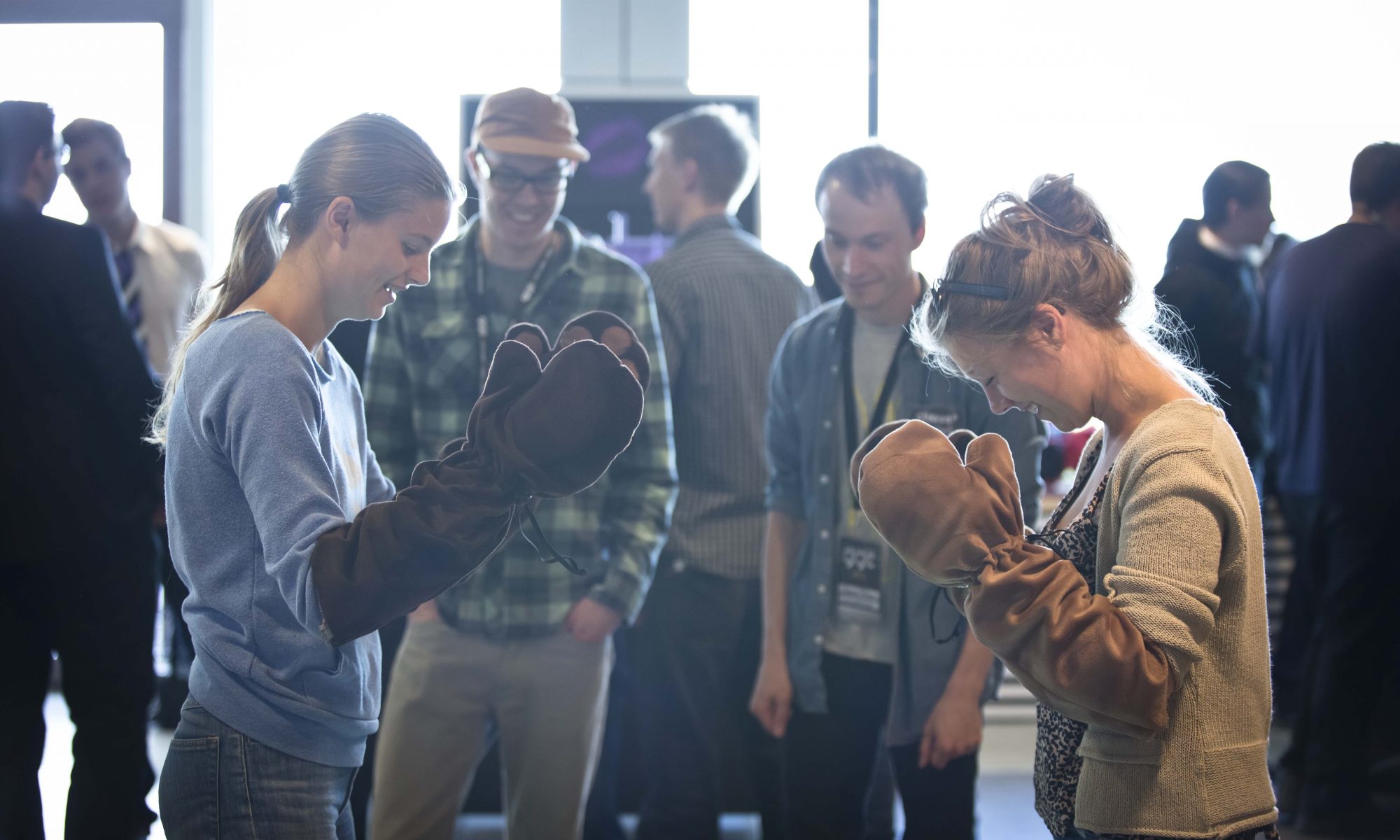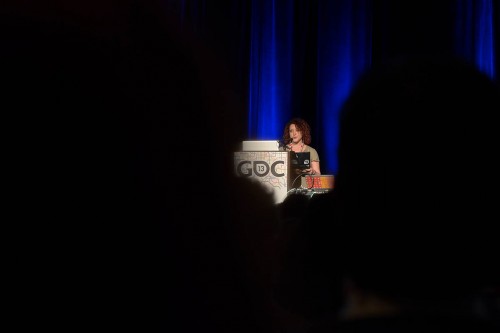
Adam Mayes is such a shameful fanboy. His enthusiasm for USA, San Francisco and the “real” GDC has been diabetes inducing – long ago triggering the predictable counter-reaction in yours-trolly.
I am willing to admit now though that the man was right about GDC. I can’t remember leaving a session of GDC Europe feeling inspired. Or enthusiastic. Or validated. Or whipped.
Informed – absolutely, but never… improved.
We’ve been here two days and the conference has yet to start proper. The first two days are “summits” – I’m primarily following the Education and the Monetization summits with a dip in the AI track every now and then. The AI people have, by far, the most fun in their sessions.
Only two days, and I’ve already met and spoke with Brenda and John Romero, Leigh Alexander, Tracy Fullerton, Eric Zimmerman, Ian Schreiber, Jeff Orkin – you know. The people that writes The Books. The people that we Follow.
A lot of talk of inclusion, gender and death to the boy club all around the conference. The topic crops up in almost every session. There is an undeniable air of synchronicity with our own conference theme. People respond extremely well when I bring the GGC up, so I’m doing my best and grabbing big name-speakers here.






Quick post mortem for future reference:
1. There was a two day track about game education. All the leading schools in game design and development was there. We are the only Swedish education in the room.
2. We’ve seen how six other universities set up their curriculum. (curriculum death match)
3. We’ve had the topic of our conference validated with everything about inclusiveness and equality we’ve seen mirrored here
4. We’ve had the topic of our education validated (we’re not tech, and we’re not art. we’re design)
4. The topic of diversity is broader than what we see in Sweden (specifically race, class / community).
5. We’ve met a lot of new guest lectures / got invites to new places
6. Up to date information about the business, such as the African market, IP licensing and franchises in the day of free-to-play, in game purchases, new types of games that make money.
7. We saw post mortems from some of the most successful indie game productions – developers making the kind of games our students do, and making reasonable gold of it. (they all – unknowingly – shared a scientific iterative process, expressed through artful direction).
8. We met with old friends; Bonnie, Mike, Vanderberghe, Mirjam, Saint, Ernest, Cactus
Anita, Brenda, Jesse, Brandon (30 Flights of Loving), Warren Spector,
9. We went to the Nordic Game party and avoided all Swedes and saw Robin and Don in the crowds.
10. We’ve got a bunch of guest lecturers for GGC and our courses.
11. We’ve learnt the tricks to writing strong grant proposals (and will be using this method and format for game concept pitching)
12. Be realistic about your games department. Among the really successful game design programs almost no staff have tech-diplomas. Almost no one has a phd.
Game Design is a liberal art. Video games are not the result of technology. It’s a human activity.
Many of the people we follow are actual artist teaching game design. Understanding games as artistic expressions.
13. Overworked people can only teach others to be overworked themselves.